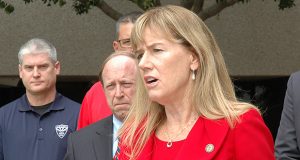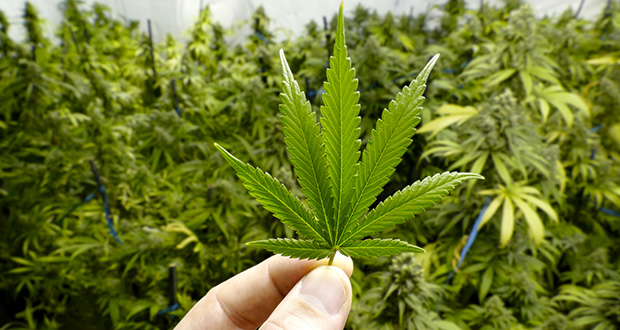Fearing unintended consequences for patients, especially children, Attorney General Mark Brnovich on Monday withdrew his agency’s arguments urging the Arizona Supreme Court to declare hashish and extracts of marijuana illegal in all situations.
In a surprise move, Brnovich told the justices to ignore a week-old filing which asked them to refuse to consider legal arguments by Rodney Jones, a medical marijuana user, that he was wrongfully convicted of a felony for possessing 0.05 ounces of hashish.
Brnovich spokesman Ryan Anderson said his boss is concerned that the way his agency’s filing was worded could have implications far beyond whether Jones was legally convicted.
“The last thing the attorney general wants is to deny medicine to legitimate patients that may be ingesting their marijuana in an extract or a tincture-type of a form,” he said. And Anderson noted there are children who, under current interpretations of the law, are now getting the drug in liquid fashion to treat their seizures.
What happens now is unclear.
Anderson said that, on one hand, the Attorney General’s Office is legally required to defend criminal convictions obtained by county attorneys. And in this case, a trial judge ruled that it was illegal for Jones, a medical marijuana patient, to have 0.05 ounces of hashish.
That decision was upheld in a split ruling by the Court of Appeals, with Jones now seeking Supreme Court review.
Anderson said the filings of the criminal appellate division seeking to uphold the conviction were not run by Brnovich who is seeking reelection this year against a challenge by Democrat January Contreras. That failure to consult Brnovich is not normally a problem, Anderson said, with that division pretty much operating on its own, even though all the filings bear Brnovich’s name.
But Anderson said this case is different because of the wholesale arguments that alternate forms of marijuana are illegal. And that, he said, ran into something else.
“The attorney general has a responsibility to uphold the will of Arizona voters,” Anderson said. And he said it may very well be that the 2010 voter-approved law does permit patients to buy and use their marijuana in forms other than the leaves and flowers despite the lower court rulings.
The surprise move comes on the heels of a Capitol Media Services story detailing how the Attorney General’s Office was asking the justices to adopt a narrow view of what voters approved in 2010 when they adopted the Arizona Medical Marijuana Act.
That law allows patients with specific medical conditions and a doctor’s recommendation to obtain up to 2 1/2 ounces of marijuana every two weeks. That list includes cancer, glaucoma, AIDS, and nausea, seizure, and “severe and chronic pain.”
The law specifically allows for mixtures and preparations. And the state Department of Health Services has adopted rules permitting state-licensed dispensaries to sell other forms of the drug, including making them in to edibles, as long as the amount of marijuana used did not exceed that 2 1/2-ounce limit.
Yavapai County Attorney Sheila Polk, however, got a trial judge to agree with her argument that hashish, made from the resin of the plant, is not covered by the act but is a narcotic drug. Jones was sentenced to 2.5 years in prison, a conviction upheld by a 2-1 split in the state Court of Appeals.
That paved the way for Supreme Court review – and the now-abandoned arguments by the Attorney General’s Office that the 2010 law allows only for the use of leaves and flowers.
That legal position also created other problems.
Former state Health Director Will Humble, who crafted the rules after the 2010 vote, said he worked closely with the Attorney General’s Office in deciding what forms marijuana could be sold. And he told said that he was given the go-ahead to adopt rules that specifically allowed for the sale of not just the plant itself and its parts but also the extracts made from them.
Anderson said what may happen now is for Brnovich to take a more neutral position on the issue of what forms of marijuana are legal for dispensaries to sell and for patients to possess. That, he said, would leave it up to the Arizona Supreme Court to decide.
“I think the attorney general recognizes that legitimate patients can ingest marijuana in various forms,” Anderson said. But he said the 2010 law “is perhaps ambiguous.”
“And so what we’re asking the Supreme Court to do is to determine whether or not the Arizona Medical Marijuana Act, as it’s currently drafted, contemplates extracts and other forms of medical marijuana that may not be in a leafy bud form,” Anderson said.
Polk said late Monday she was not aware of Brnovich’s action. But she defended her decision to prosecute Jones – and to take the position that extracts like hashish are not covered by the 2010 law.
There’s another option. Both Anderson and Polk said the Arizona Legislature could seek to clarify the law and spell out clearly, one way or the other, what forms of marijuana other than leaves and flowers are legally available to patients.
















